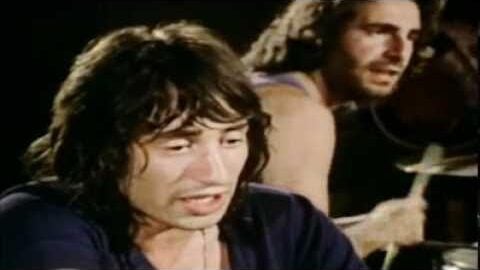3 Forgotten Rock Bands That Made It Big in 1970 and Then Vanished Without a Trace

via Uwe T. / YouTube
The 1970s are often remembered for the massive rock giants that still dominate playlists today, but not every group that found the spotlight held onto it. The turn of the decade was a particularly volatile moment in music history, with trends shifting rapidly and audiences hungry for something new. In the middle of all this, a few bands managed to break through, earn radio play, and even flirt with stardom—only to fade away just as quickly.
What makes these stories so intriguing is the speed of their rise and fall. One moment, they were rubbing shoulders with established acts, releasing promising singles, and drawing crowds. The next, they were gone—overshadowed by shifting tastes, internal struggles, or sheer bad luck. For fans who remember hearing them at the time, it’s almost surreal how quickly they vanished from the conversation.
Looking back now, their fleeting success is almost as fascinating as the hits themselves. These bands captured the sound of their moment, gave us songs that resonated, and then slipped into obscurity. Revisiting them offers not just a trip down memory lane but also a reminder of how unpredictable the music business can be—especially in an era as chaotic and creative as 1970.
Hotlegs
Like many rock acts of the early ’70s, Hotlegs burned bright for only a short time. Their claim to fame came with the quirky yet irresistible single “Neanderthal Man,” which stormed the UK charts in 1970, reaching No. 2, while also breaking into the Top 40 in the US. It was a major success for a band that had only just formed, and it seemed like the beginning of a promising career.
By 1972, however, Hotlegs had already disappeared from the scene after releasing just two albums and a few singles. Fans who enjoyed the experimental charm of “Neanderthal Man” were left wondering why such a promising group had fizzled out so quickly. On the surface, it looked like another case of a one-hit wonder.
But the truth is a little more complicated. Hotlegs never really ended—they simply transformed. The same members regrouped under a new name: 10cc. That band would go on to find worldwide success with classics like “I’m Not in Love,” proving that while Hotlegs vanished, their story didn’t quite end in obscurity after all.
Crabby Appleton
Few band names scream “1970s” more than Crabby Appleton. This Los Angeles group found their moment in the sun that very same year with the catchy single “Go Back,” which cracked the Top 40 in the US. Their self-titled debut album also performed reasonably well, putting them on the radar as one of the more exciting newcomers of the time.
Despite the early attention, the band couldn’t seem to maintain momentum. With only two albums under their belt, Crabby Appleton disbanded by 1972. Part of the problem was the lack of a clear musical direction—torn between rock and power pop, they struggled to carve out a distinct identity that resonated with listeners.
Still, the short-lived band had its moments. They opened for some of the biggest names of the era, including The Doors and even ABBA, giving them a taste of major success. Though their career was brief, it remains a reminder that not every group needs a long run to make an impression.
The Assembled Multitude
For anyone digging deep into 1970s obscurities, The Assembled Multitude is a fascinating case. Formed by arranger Tom Sellers, the group was essentially a collection of studio musicians brought together to record instrumental versions of popular hits. Their medleys included songs like The Beatles’ “While My Guitar Gently Weeps” and The Who’s “Overture.” It was the latter cover that propelled them into the spotlight, climbing to No. 16 on the US charts in 1970.
Unlike most rock bands, The Assembled Multitude didn’t tour or promote themselves in the traditional sense. Their work existed almost exclusively in the studio, which gave them a mysterious air. Fans never knew much about who exactly played on the records, and there was little in the way of a public image to hold onto.
Their final release came in 1981 with “Theme From ‘Cosmos’ (Heaven And Hell),” and after that, they quietly disappeared. Even Tom Sellers’ death in the late 1980s left many questions unanswered about the project and its members. Today, The Assembled Multitude stands as one of the stranger footnotes of the era—briefly successful but ultimately lost to time.














